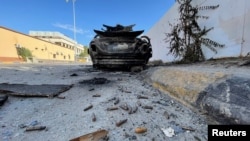The clashes in Tripoli grew from the quest for legitimacy between the internationally recognized Government of National Unity (GNU) under Abdul Hamid Dbeibah and the rival administration appointed by the eastern-based House of Representatives under Fathi Bashagha.
Fathi Ali, former vice president of the Libyan Presidential Council, says all armed formations in Libya are funded by the government, so they benefit from the security vacuum and the country’s political crisis.
“They are preventing the government from developing a professional security apparatus. What Libya needs when it comes to the security sector is security system reform, temporary security arrangements and unless we establish a vision for a new security system in Libya, any political sharing agreement will fail.” Ali said.
Ali noted that all UN agreements failed to include that sector in power sharing to break the cycle of violence in Libya. To learn from past lessons, he suggested that instead of holding elections, Libya could try to reach a power-sharing agreement with a decentralized system, transferring resources and decision-making process to the locals besides a central government with local participation to keep the interests of various factions holding the country together.
The international community focused its efforts on holding elections in Libya as the first step to reset the political scene, but the collapse of UN-backed efforts to establish a roadmap for elections which was delayed in December 2021, created severe divisions between rival groups.
Federica Fasanotti, a senior fellow at the Italian Institute of International Political Studies, blamed the UN for focusing on holding elections in Libya while the country’s institutions are very weak.
“The vision was wrong because they thought for example that elections are the first manifestation of democracy, but it is not true, Institutions are the foundation for democracy because they represent the link between politics and the population.”
She said Libyan institutions were too weak to contain violence, which crumbled stability and the UN mission in Libya treated the Libyan politicians as democratic leaders although they were fighting for power.
Fasanotti added that a political solution appears increasingly difficult with sustained escalations and protracted political stalemates that will inevitably threaten Libya's ability to implement a stable democratic system.
Libya is now at a critical juncture where whatever steps are next taken will significantly impact the future of the political process, as well as that of economic reconstruction, development, and the rebuilding of public infrastructure.
Tarik Yousef, director of Middle East Council on Global Affairs, stressed the need for a new special representative of the UN in Libya, a decision that can be derailed by Russia.
But Yousef said the U.S. and its allies can defuse the crisis, provide a roadmap that hopefully take Libya to elections and at the same time begin working on rebuilding state institutions and rehabilitating the economic management, especially the oil sector which became more valuable to the world's need for energy.
“Unfortunately, where things are between the West and Russia, it is unlikely anytime soon that there will be a consensus within the U.N. Security Council on who the next representative would be,” Yousef said.








